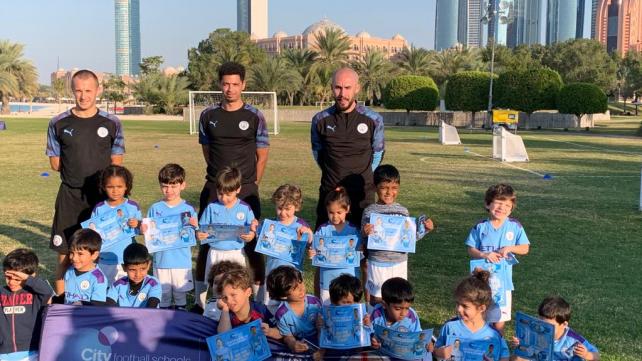
When we think of the advantages associated with engaging in any kind of sport, our first instinct is to think about physical fitness and strength training. While those are real, there is actually a lot more to it than just helping to maintain a healthy and active lifestyle.
A significant body of research has found that sports play a positive role in supporting youth development, self-discipline, improved academic achievement, fewer behavioral problems, better psychosocial health, and more. In fact, almost every study reveals benefits in competence, character, confidence, and other critical components of social and emotional development. There is also a suggestion that the benefits are increased further for children who suffer from adverse childhood experiences.
Here are eight of the benefits that children of all ages can enjoy through regular participation in team sports.
1. Build confidence.
Being part of a team requires all team players to work towards a common goal or objective. In that, each player feels intrinsically motivated to perform better by adopting a persistent approach towards training.
This persistent approach comes with proper support and motivation from the coaches and mentors, as well as other team players in the form of praise, recognition, and encouragement. This helps in boosting self-confidence in children who then see themselves as capable of achieving their set out targets and goals for the greater good of the team as a whole.
2. Cultivate feelings of respect.
Playing on a team requires that one has to follow instructions and simultaneously maintain a degree of respect for authority, i.e. towards the coach/trainer/mentor. That said, each player on the team is also respected by other team members and coaches for having their own individual strengths and talents which they bring to the table. This in itself, teaches children how to address and value diversity and uniqueness.
In addition to recognizing individual talents, players are assigned specific responsibilities to carry out the field of play. They also observe acting together in unselfish ways, on behalf of the team which allows children to learn how to respect one another, as equals, and not cut corners.
3. Increase opportunities for socialization and communication.
By engaging in these structured activities, children learn to socialize with other team players who may belong to different racial or ethnic groups and who have different personalities. With the right environment, these social interactions can build and reinforce the value of diversity.
Being on the team also forces them to work in partnership with other players and get along in a group setting, thereby supporting socialization and as a result, helping them to think from the team's perspective. This also encourages teammates to demonstrate a show of accountability in case of unexpected behaviors, teaching children to take responsibility for their mistakes.
4. Reinforce soft skills and self-discipline.
All team sports are structured to a certain extent and guided through rules. This helps in establishing healthy boundaries for competition. Through team sports, children learn how to initiate, take the lead, manage, and negotiate with other players to reach a common goal.
Team sports involve diverse pairings of personalities and scenarios and players learn to become adaptable, patient, and persistent. It is all about collaborating with a mutual interest and of course timing has to be perfect!

5. Curate true sportsmanship.
Playing a team sport requires a great deal of resilience, practice, and perseverance - all of which nurture higher levels of self-esteem and confidence. Regardless of how strenuous the training might be, players are expected to show commitment towards training and in achieving the set out goals for the team.
A true sportsman recognizes and accepts defeat. In this are valuable lessons gained through self-reflection - such as accountability, relationship between cause and effect, and unfavorable outcomes owing to involuntary situations.
6. Assist in emotional development.
According to Dr. Joseph Austerman, a psychiatrist at the Cleveland Clinic, the structured setting of team sports helps in creating a safe environment which promotes learning of social skills, especially if a child is struggling with emotional regulation or interacting with others.
Austerman stated that “this research shows how physical and mental health are tied together when it comes to overall well-being.” Through extensive research, it has been established that physical activity helps relieve and reduce stress. But when it comes to team sports, it has been proven to be particularly beneficial for children in terms of emotional development by means of promoting self-regulation of emotions. And learning these skills in childhood can lead to more positive experiences in the future.

7. Promote critical thinking skills.
Speaking of team sports, each sport and in that, each game is completely different. The situation and circumstances vary from one game to another in terms of opponents, player's strengths and weaknesses, tactics, and game plan. All of these need to be taken into widespread consideration by each team player. Most often, these decisions are made spontaneously on the field of play in the spirit of competition, to maximize opportunities for success and minimize personal and team errors.
8. Improve concentration and physical strength.
Last but not least, every sport be it team sport or otherwise, aids in physical development of the body. It also helps address issues relating to concentration and improves focus significantly as that is a prerequisite for acing all kinds of sports activities. The hand-eye coordination, balance, muscular movements, etc., are all supported during sports training.
“Talent wins games, but teamwork and intelligence wins championships.” Michael Jordan
The benefits tied to team sports are so great that it makes parenting seem a wee bit easier, and can be fun for the entire family! As a parent, you get a feeling of reassurance coupled with relief when you see your child playing on the field, learning to put their best foot forward, and adopting values like respect, self-discipline, resilience, patience, and perseverance along the way. While there is likely to be a financial cost, too (and sometimes a substantial one), the investment is worth the benefits that it brings to our future generation and us. The earlier we start, the better!
Umm Ahmed is an early childhood educator and writer who is passionate about seeking knowledge and passing it onto others. She and her husband are parents to three boys and are currently living in Abu Dhabi.




Add new comment